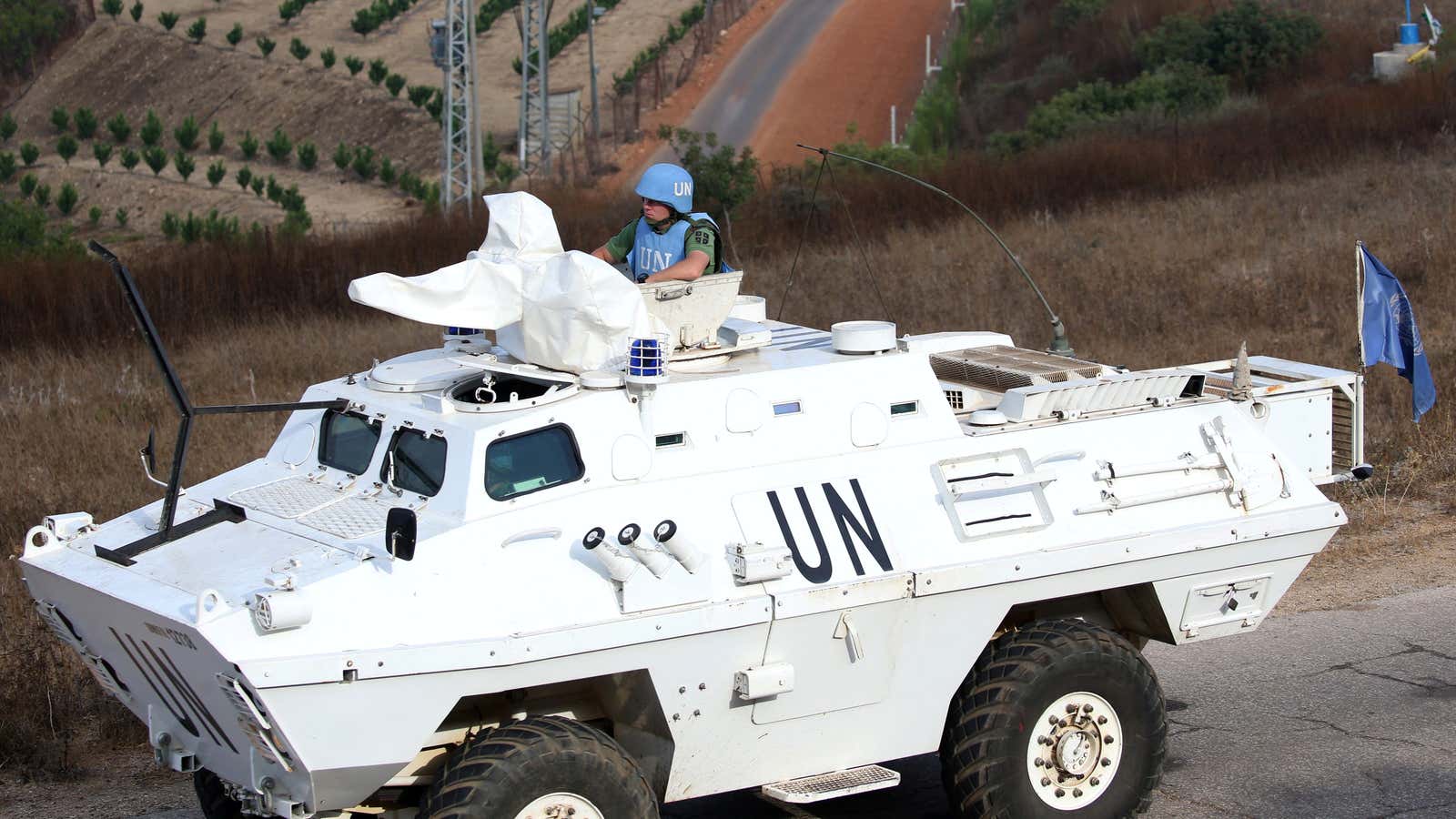If the United States continues to pay late and withhold funds, the UN’s finances could fail. The US is the organization’s largest funder and it is, in part, because of the country’s tardy payments that the UN finds itself in financial turmoil year after year.
As of October 9, the UN regular budget was $386 million overdrawn, and by the end of the month it will surpass last year’s record cash deficit of $488 million, says a UN report (pdf). The regular budget funds the UN’s core activities, including staffing costs, and a handful of missions.
The UN is in the midst of a severe liquidity crisis; the UN says its regular budget could run out of money in just weeks.
This isn’t unexpected. Each year, the regular budget has cut into extra funds earlier and earlier, and 2019 is the second year in a row in which the organization exhausted all regular budget reserves and is staying afloat with funds left over from closed peacekeeping missions.
Each of the UN’s 193 members is required to pay dues to the organization, with the largest sums going to the general and peacekeeping budgets. The US is the largest funder by far. In 2017, it contributed more than $10 billion to the UN, roughly one-fifth of the organization’s entire budget.
The United States is currently responsible for $1.1 billion of the unpaid fees to the general budget, a portion of which is carried over from prior years. This is roughly 75% of money owed to the general budget.
The US tends to pay its bill in late October or November, meaning the budget regularly hits bottom before the year-end injection from Washington. UN regulations require nations to pay their annual dues much earlier, by the end of January, but many don’t. In order to have the cash to cover salaries and essential services for the year, the UN typically postpones certain spending. The organization admits (pdf) that such financial uncertainty means spending decisions are consistently based on managing liquidity, rather than fulfilling its missions.
The UN general budget allocates $955 million in spending for the last quarter of 2019. But with only $147 million of cash left to draw from closed peacekeeping missions, the organization needs $808 million to stay in operation. A single payment from the United States would cover that, and more.
Some experts suggests the UN could get around its current shortfall by borrowing from the peacekeeping budget. Others are looking to the future and the rise of China; projections suggest the country will be required to pay the same share as the United States in less than a decade.
The US also owes $2.4 billion to the peacekeeping budget, some of which is a build-up of late payments from previous years. The US Congress capped its contribution to the peacekeeping budget in 1994, and has regularly passed special measures since then to pay its bill in full. Since 2017, however, the US has enforced the cap and now owes nearly $1 billion in missing payments.
The UN is in a tricky situation. It is unable to force the US to pay on time, let alone in full. But as the peacekeeping budget runs low, the UN’s ability to enact lifesaving missions is strained. And each time the general budget dries up, it’s harder to keep the lights on.
